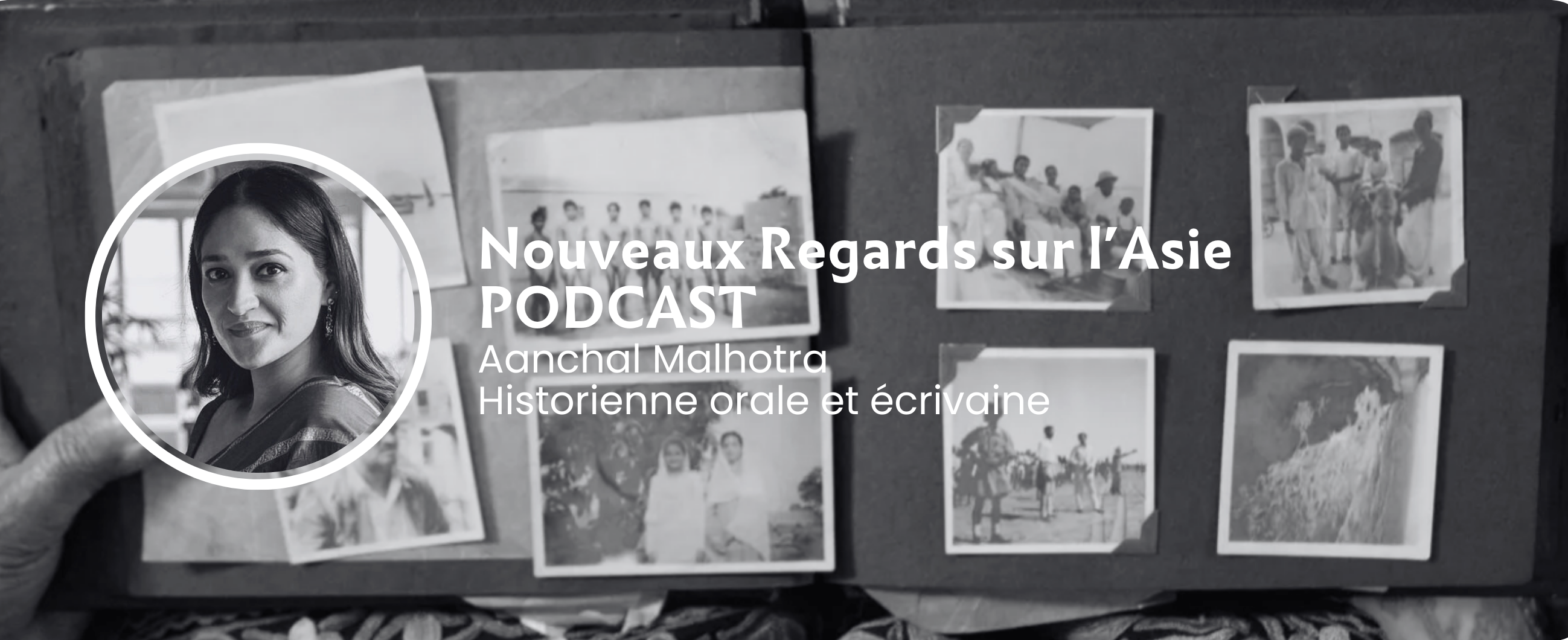
On June 14, 2024, the Fondation France-Asie and its Indian chapter, the France India Foundation, were delighted to welcome oral historian Aanchal Malhotra from New Delhi to the premises of their partner Cap Gemini, to talk about her essay "Vestiges d'une séparation" (Remnants of a Separation), translated from English by Camille Cloarec and published in 2021 by Éditions Héloïse d'Ormesson.
"Remnants of a Separation" is the first book Aanchal wrote at the age of 23. The idea to write the book came to her in the fall of 2013, when she had returned to the city where she grew up, New Delhi, for a research sabbatical as part of her Master of Fine Arts at Concordia University in Montreal. That day, she accompanied a friend who wanted to write a story about the ancient houses of the Indian capital. Aanchal had taken her to the 1950s house where her maternal grandparents lived. In the middle of the conversation, her grandfather had pulled out of the cupboards some of the few possessions his family had had just enough time to take with them, at the time of the partition between India and Pakistan (West and East) in 1947, and the terrible violence that this was to bring on both sides of the new border drawn by the British. As she recounts in the introduction to her book, "That afternoon, as the objects were brushed, studied, summoned and contextualized through anecdotes from long ago, the importance of material memory crossed my mind." Aanchal became aware for the first time of an object's ability to preserve memory and stimulate recollection.
In India and Pakistan ("a return to our roots"), but also in Bangladesh and the UK, where she travelled to complete her research, Aanchal met "living libraries" who had lived through this tragic episode in the history of India, colonized by the British crown. She collected stories from these people or their descendants about everything from crockery to parrots to crocodile skins, she recounts: "I came across objects from across the border that now link several family members settled in different parts of the world, or childhood friends separated during the Partition."
Each object," she continues in her introduction, "is presented as a case study in migration, offering a plunge into the heart of the Partition's personal narratives. Behind this material dimension, it is above all a question of the way of life in united, secular India. Each of these antique objects has its own unique history, which Aanchal has tried to reconstruct by working on the memory linked to these objects and the happy or unhappy memories they arouse in their owners.
Indeed, throughout South Asia there are still countless accounts of the Partition - a word long taboo in the families who lived through it - between India, Pakistan and Bangladesh, after the hasty departure of the British occupying troops. In the stories she has collected, violence is omnipresent, but the memory of this violence is never "simplistic", notes Aanchal. Through her research, which took place over a period of around ten years, the writer brings to light a common, multi-generational and cross-border (India, Pakistan, Bangladesh) legacy of the Partition.
This dialogue between the objects and their owners has led her to conclude that the Partition is still today, after seventy years, a subject as sensitive as it is complex, because it is impossible, according to Aanchal, who here dons her historian's clothes, to link the events that unfolded in 1947 to a single cause or community. The question of responsibility remains unresolved. It cannot be said with certainty that it was the fault of the Hindus, the Muslims, the Sikhs or even the British, for, she concludes, no one was spared the suffering brought about by this veritable human tragedy.
It's a conclusion that invites us to listen to him in this podcast, and for those who wish to know more, to read his book, which is an attempt to unravel the mystery buried in the memories of the men and women who lived through one of the most dramatic moments in the history of this sub-continent, which was abruptly divided into three territories. A moment that left a wound on both sides of the border, unfortunately still intact today.
Young Leader of the France-India 2023 program, Aanchal has received numerous national and international awards for her literary work. She is also co-founder of the Museum of Material Memory.
Find out more about Aanchal Malhotra, his work and his Museum :
www.museumofmaterialmemory.
Aanchal invites us to listen in and find out more.
Music credit : Erothyme - Cherry Picking
